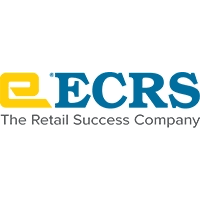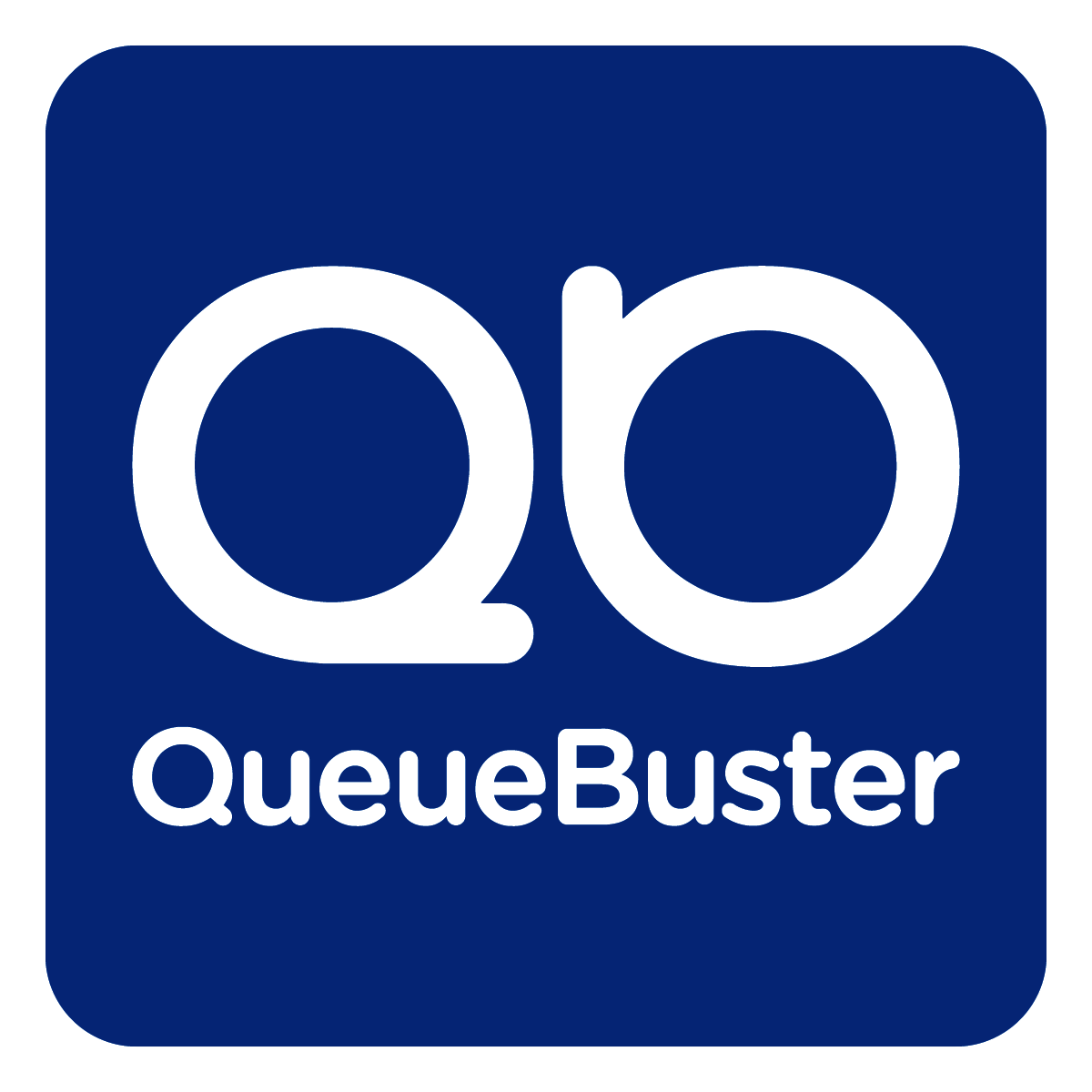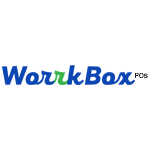Description

ECRS

QueueBuster POS
Comprehensive Overview: ECRS vs QueueBuster POS
ECRS (Efficiency Concepts Resource Solutions) offers a range of solutions focused on retail automation, with QueueBuster POS being one of its notable products. Let's delve into the specifics of ECRS, QueueBuster POS, and their positioning in the market.
a) Primary Functions and Target Markets
ECRS: ECRS provides comprehensive retail management solutions specializing in point-of-sale (POS) systems, inventory management, and customer engagement tools. The primary functions include:
- Point-of-Sale (POS) Systems: Facilitates various sales transactions with a focus on speed and efficiency.
- Inventory Management: Provides real-time tracking, automated ordering, and inventory optimization tools.
- Customer Loyalty Programs: Enhances customer retention through personalized marketing, rewards, and engagement strategies.
Target Markets: ECRS primarily targets retail sectors such as:
- Grocery stores
- Natural and organic stores
- Independent retailers
- Multi-location franchise operators
QueueBuster POS: QueueBuster POS is a mobile and flexible point-of-sale solution designed to alleviate customer wait times by enabling transactions anywhere in the store. The primary functions include:
- Mobile POS Capabilities: Allows sales associates to process transactions away from traditional checkout lanes.
- Line-Busting: Helps reduce queues by enabling quick checkouts via handheld devices.
- Integration with Inventory Systems: Ensures accurate stock management and reduces the chances of selling out-of-stock items.
Target Markets: QueueBuster POS is ideal for:
- High-volume retail environments
- Seasonal or pop-up stores
- Events and conventions
b) Market Share and User Base
Market Share: While specific market share data for ECRS and QueueBuster POS may not be publicly available, ECRS is recognized for its significant presence in niche markets like grocery and natural foods retailing. Its innovative approach attracts a considerable portion of these specialized sectors.
User Base: ECRS, including QueueBuster POS, serves a diverse range of small to mid-sized businesses. Its user base comprises independent retailers seeking robust solutions that integrate seamlessly with broader retail operations, particularly those valuing mobile transaction processing.
c) Key Differentiating Factors
-
Customization and Flexibility: ECRS, including QueueBuster POS, offers extensive customization options tailored to niche markets like groceries and health-focused stores. This specialization allows businesses to adapt the platform specifically to their operational needs.
-
Mobile Implementation: QueueBuster POS differentiates itself through formidable mobile capabilities, offering flexibility that traditional POS systems might lack. This feature is crucial for businesses looking to improve customer service efficiency and reduce checkout times.
-
Integration Capabilities: ECRS promotes seamless integration with existing systems, including inventory and customer relationship management (CRM) tools, simplifying operations by providing a unified approach to managing various retail functions.
-
Focus on User Experience: Both ECRS and QueueBuster POS emphasize creating a user-friendly experience for businesses and their customers, with intuitive interfaces and processes tailored to improve overall satisfaction.
-
Loyalty and Engagement Features: ECRS excels in crafting loyalty solutions that engage customers through personalized promotions and rewards, enhancing customer retention rates and brand affinity.
In summary, ECRS and its QueueBuster POS offerings are strategically positioned to serve specific segments of the retail market, particularly those requiring flexible, integrated, and user-friendly systems. Their market distinction lies in their mobile solution prowess, industry-specific customizations, and robust customer engagement tools.
Contact Info

Year founded :
1940
Not Available
Not Available
Not Available
Not Available

Year founded :
2015
+91 78610 44000
Not Available
India
http://www.linkedin.com/company/queuebuster-pos
Feature Similarity Breakdown: ECRS, QueueBuster POS
When comparing ECRS and QueueBuster POS systems, it's important to focus on their core features, user interfaces, and unique offerings. Here's a breakdown of these aspects:
a) Core Features in Common
Both ECRS and QueueBuster POS systems are designed to streamline retail operations and enhance the customer experience. Common core features typically include:
-
Sales Processing: Both systems handle transactions efficiently, supporting features like barcode scanning, multiple payment methods, and sales tracking.
-
Inventory Management: Both provide tools for tracking stock levels, reordering products, and managing supplier information, thereby helping in maintaining optimal stock levels.
-
Customer Management: ECRS and QueueBuster POS systems include features for tracking customer information, purchase history, and preferences to facilitate personalized service.
-
Reporting and Analytics: Both systems offer reporting tools to help businesses analyze sales data, understand market trends, and make informed decisions.
-
Employee Management: Integration tools for managing staff, tracking performance and scheduling shifts are typically available.
-
Multi-store Management: If applicable, both platforms offer capabilities to monitor and manage multiple store operations from a single dashboard.
b) User Interface Comparison
-
ECRS: Known for its intuitive design, ECRS's user interface focuses on ease of use for both front-line staff and back-end management. The layout is often customizable, allowing users to tailor the dashboard to their specific needs. Its interface generally emphasizes quick navigation and accessibility, which is crucial for fast-paced retail environments.
-
QueueBuster POS: Optimized for mobile use, QueueBuster's interface is designed to be user-friendly and suitable for a variety of devices, including tablets and phones. The interface focuses on mobility and ease of use, often featuring drag-and-drop elements and easy-to-navigate layouts. This is particularly beneficial for businesses needing portable solutions.
c) Unique Features
-
ECRS:
- Advanced Automation: ECRS offers advanced automation tools, such as auto-replenishment and predictive ordering, that help reduce manual effort and errors.
- Comprehensive Loyalty Programs: It features robust loyalty and rewards program integration, enabling retailers to create customer-centric marketing campaigns.
-
QueueBuster POS:
- Strong Mobile Capabilities: QueueBuster is highly optimized for mobile devices, making it an excellent choice for pop-up shops, mobile businesses, or markets where space is limited.
- Subscription Flexibility: QueueBuster often offers flexible subscription models that can be scaled up or down depending on the specific needs of the business, which can be a cost-effective solution for growing businesses.
- Offline Functionality: Its ability to process transactions even without an internet connection is a distinctive feature, ensuring business continuity in various situations and locations.
In summary, while both ECRS and QueueBuster POS systems offer comprehensive tools for retail management, their specific strengths and unique features cater to different business needs. ECRS may appeal more to businesses looking for extensive automation and loyalty options, whereas QueueBuster's mobile optimization and offline capabilities might be more attractive to businesses needing flexibility and mobility.
Features

Not Available

Not Available
Best Fit Use Cases: ECRS, QueueBuster POS
ECRS and QueueBuster POS serve the retail and service industries, but each has specific strengths and ideal use cases.
a) ECRS: Best Fit Use Cases
Types of Businesses or Projects:
-
Grocery Stores and Supermarkets:
- ECRS (Enhanced Customer Retail Solutions) is well-suited for grocery stores and supermarkets due to its comprehensive point-of-sale (POS) systems, inventory management, and loyalty program features. It supports high transaction volumes and complex inventory needs typical of grocery businesses.
-
Convenience Stores:
- The robust inventory management and sales analytics capabilities make ECRS a good choice for convenience stores, which require quick checkouts, efficient stock management, and promotion tracking.
-
Fuel and Food Retail Chains:
- Chains that integrate fuel sales with food retailing benefit from ECRS's capability to handle diverse product types and sales reporting needed to manage both sides of such businesses seamlessly.
Key Scenarios for ECRS:
- High transaction volumes needing reliable, fast POS solutions.
- Businesses with detailed inventory tracking requirements.
- Operations requiring strong integration between different stores and centralized management systems.
b) QueueBuster POS: Preferred Use Cases
Types of Businesses or Projects:
-
Small to Medium Retail Stores:
- QueueBuster POS is suitable for small and medium-sized retail businesses that need an easy-to-deploy, user-friendly system that doesn’t require significant infrastructure investment.
-
Pop-up Shops and Events:
- Its portability and cloud-based nature make it great for temporary retail settings such as pop-up shops, markets, or events where quick setup and takedown are needed.
-
Service-Based Retailers:
- Businesses like salons or repair shops can utilize QueueBuster POS to manage non-inventory sales and appointments, providing flexibility with its appointment scheduling and customer management features.
Key Scenarios for QueueBuster POS:
- Environments where mobility and ease of use are priorities.
- Businesses requiring a lightweight, cost-effective POS system.
- Environments with sporadic or seasonal transaction peaks.
d) Catering to Different Industry Verticals or Company Sizes
-
Industry Verticals:
-
ECRS:
- Primarily caters to food retail, convenience, and multi-site operations. It provides robust features for inventory and customer relationship management seamlessly connected across locations.
-
QueueBuster POS:
- Suited for a broader range of verticals including retail, hospitality, and service industries, offering features that support modern retail needs like mobile checkout and online order integration.
-
-
Company Sizes:
-
ECRS:
- More suitable for larger enterprises or well-established businesses with significant infrastructure that need comprehensive, scalable solutions that integrate several business functions.
-
QueueBuster POS:
- Ideal for small to medium-sized businesses due to its low startup costs and ease of use, providing essential features without the overhead of a larger system.
-
In summary, ECRS is ideal for larger, complex retail environments needing integrated multi-store solutions, while QueueBuster POS excels in small to medium-scale, flexible, and mobile operations. Both cater to various industries but offer different approaches based on business size and specific operational needs.
Pricing

Pricing Not Available

Pricing Not Available
Metrics History
Metrics History
Comparing teamSize across companies
Conclusion & Final Verdict: ECRS vs QueueBuster POS
To provide a conclusion and final verdict for ECRS and QueueBuster POS, let's analyze the products based on the criteria and insights typically used in evaluating POS systems. While I don't have access to specific reviews or user experiences beyond my training data, I can offer a general framework that might help in coming to a conclusion.
a) Considering all factors, which product offers the best overall value?
ECRS: This system is known for its comprehensive set of features, including inventory management, customer loyalty programs, and robust reporting analytics. It suits businesses looking for an all-in-one solution that can scale with complexity, particularly for those in the grocery or retail sectors.
QueueBuster POS: This system tends to focus on flexibility and ease of use with mobile capabilities. It can be particularly beneficial for small to medium-sized businesses or those in the hospitality sector that need a fast, user-friendly, and mobile-friendly POS solution.
Best Overall Value: The best overall value depends on what the business priorities are:
- For a business needing a comprehensive, feature-rich POS with strong inventory and customer management, ECRS might offer the best value.
- For businesses looking for mobility, simplicity, or operating on a tighter budget, QueueBuster POS might be the way to go.
b) What are the pros and cons of choosing each of these products?
ECRS Pros:
- Comprehensive feature set that covers more than basic POS needs.
- Strong support for inventory and customer relationship management.
- Scalability for larger operations.
ECRS Cons:
- Potentially higher cost compared to simpler systems.
- May have a steeper learning curve due to its extensive features.
- Overkill for very small businesses with basic needs.
QueueBuster POS Pros:
- User-friendly interface that is quick to learn and train.
- Mobile capabilities allow for flexible use, beneficial in restaurants or field sales scenarios.
- Cost-effective for small businesses.
QueueBuster POS Cons:
- May lack the depth of features found in more comprehensive systems.
- Less suitable for large-scale retail or grocery operations with complex needs.
- Potential limitations in integration with other business systems.
c) Are there any specific recommendations for users trying to decide between ECRS vs QueueBuster POS?
-
Assess Business Needs: Before choosing, businesses should thoroughly assess their needs. Large-scale retailers with complex inventory and customer management might prefer ECRS. Small to medium-sized operations that prioritize mobility and simplicity might find QueueBuster POS more aligned with their needs.
-
Budget Considerations: Evaluate your budget against the cost of each system. Consider not just initial setup costs but also ongoing maintenance and potential need for upgrades or integration with other systems.
-
Trial Period and Demos: Make use of any trial periods or demos offered by the companies to get a firsthand experience of how each system operates and aligns with your business processes.
-
Integration Needs: Consider how each POS will integrate with your existing systems and business processes. This might play a key role in long-term operational efficiency.
-
Customer Support and Training: Evaluate the level of support and training offered by each provider, as these can significantly affect the implementation process and ongoing usage.
In conclusion, both ECRS and QueueBuster POS have their strengths and ideal user scenarios. Your decision should be guided by the specific requirements, scale, and strategic direction of your business.
Add to compare
Add similar companies




